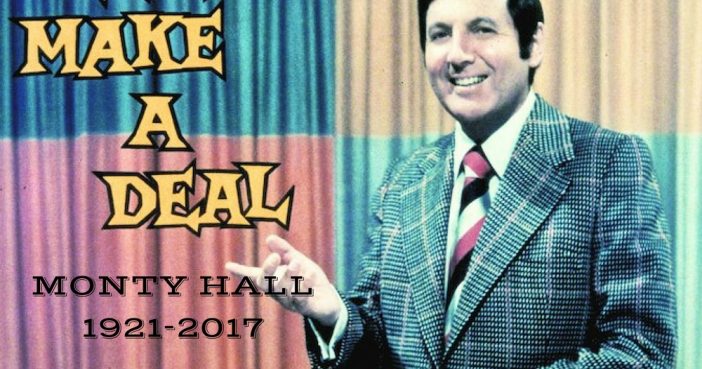
He was widowed in June when his wife, Marilyn Hall, died at age 90. The two were married for 69 years.

The smooth-voiced Hall started his career in radio in Winnipeg — after a childhood spent working in his father’s butcher shop and also in a clothing factory for $9 a week.
After developing a taste for applause while appearing in college musicals, Hall moved to Toronto, where he picked up more radio work and did what he could to break into acting and singing.
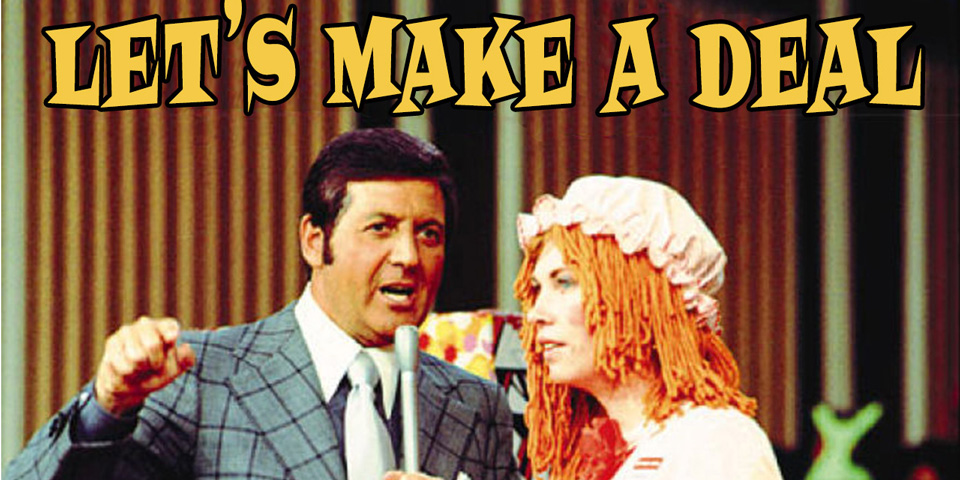
By 1955, he was living in New York and even did a year-long stint as a radio analyst for the New York Rangers.
Not long after that job ended in 1960, Hall moved his family to Hollywood.
It was while working as the host of “Video Village,” a CBS-TV game show, that Hall and his collaborator Stefan Hatos came up with the idea for “Let’s Make a Deal.”

The zany show challenged guests picked from the audience to strike deals with Hall — trading something they had brought with them for another mystery item tucked out of sight.
Frequently the hidden item — usually revealed when Hall pulled back a big curtain — was a household appliance like a dishwasher or refrigerator.
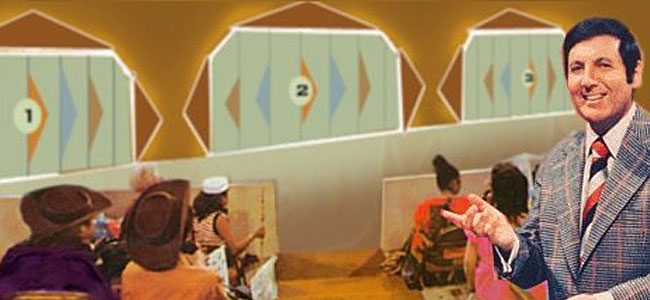
Contestants who made a bad deal got “zonked,” as the show called it.
But those who traded well got a shot at being one of two contestants to go for the Big Deal — which came at the end of the show.
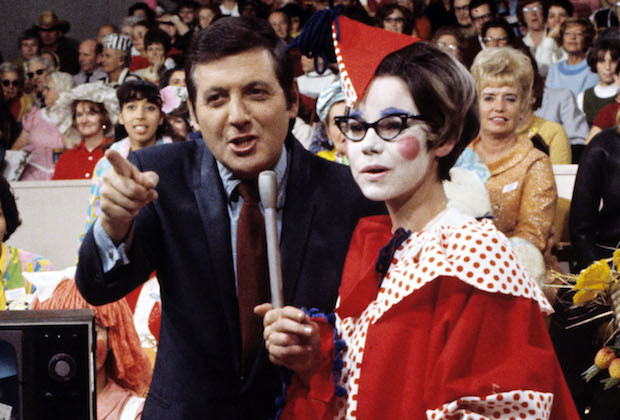
Let’s Make A Deal – 1980-1984 – Stefan Hatos/Monty Hall Productions Television (via TVLine)
In one of the signature lines of “Let’s Make a Deal,” Hall would ask the two final competitors if they wanted to surrender their winnings for a chance to choose between “door number one, door number two, or door number three.”
Often the Big Deal was an expensive vacation or a new car — but sometimes contestants gambled it all and got next to nothing in return.
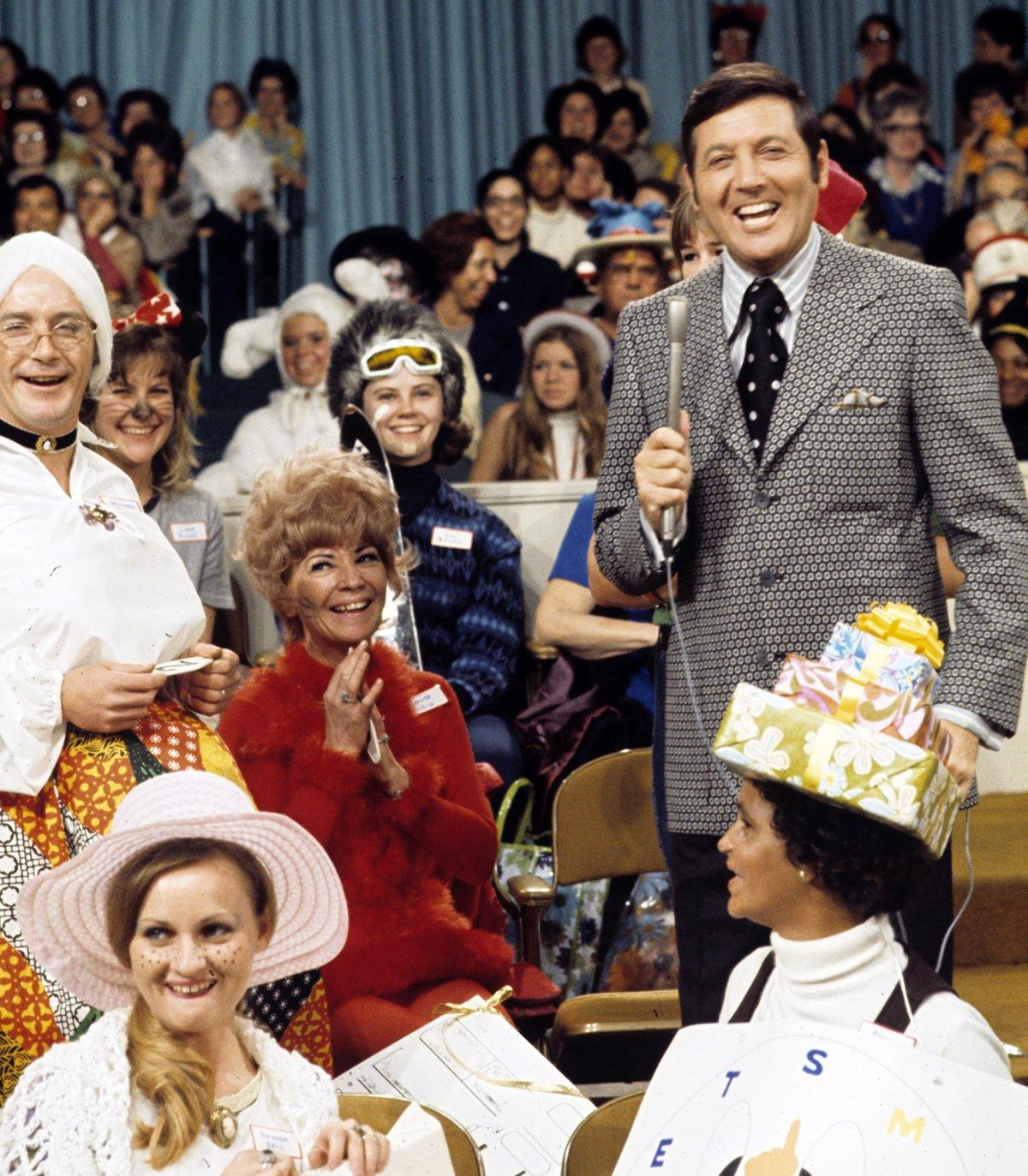
Potential contestants did all kinds of crazy things for a chance to compete — including dressing up in bizarre garb.
Hall and Hatos didn’t originally plan for outlandish costumes. But as the show grew in popularity, audience members discovered it was a wonderful way to catch Hall’s eye.
Hall stayed with “Let’s Make a Deal” when it moved from NBC to ABC and into syndication.
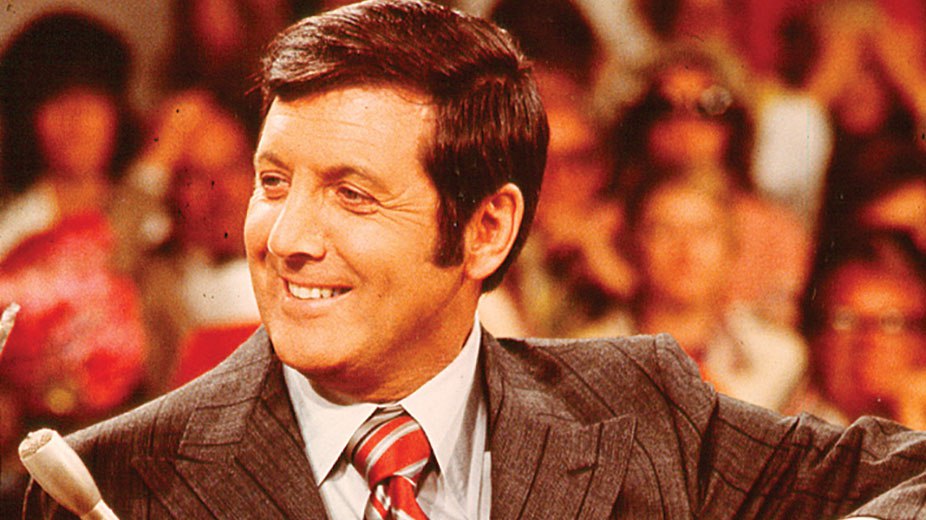
Its daytime run ended in 1976, but it ran at night for another year, and then returned every once in a while through the 1980s and 1990s.
It’s currently on air again with host Wayne Brady.

In his private life, Hall was known for his work on behalf of numerous charities. He got a Hollywood Walk of Fame star in 1973, and in 1988 was named to the Order of Canada in recognition of his philanthropy.
He is survived by his daughters Joanna Gleason, a well-known actress, and Sharon Hall, a top TV executive, as well as his son Richard Hall, a TV producer who won an Emmy for “The Amazing Race.”
(Source: NY Daily News)
